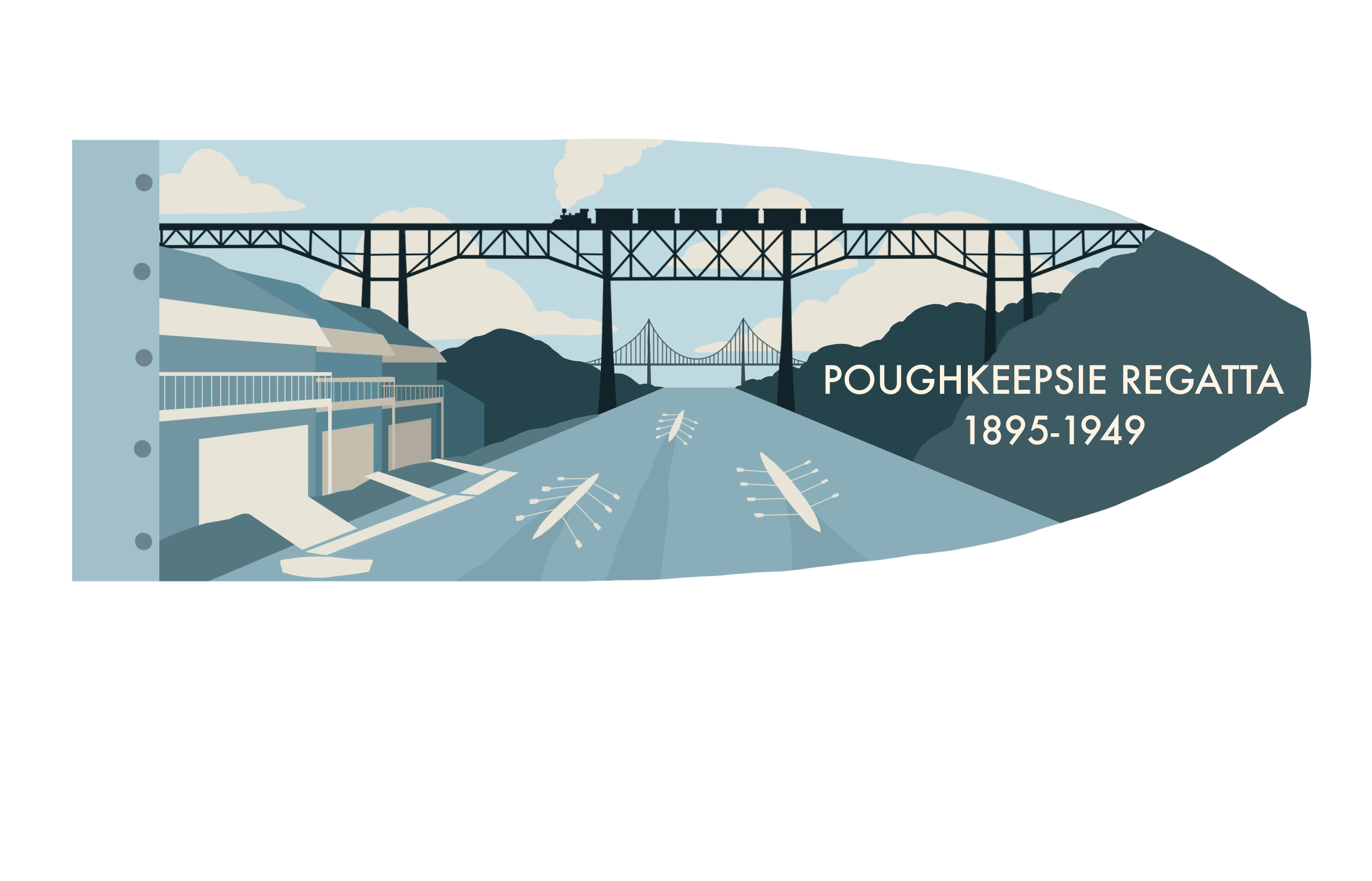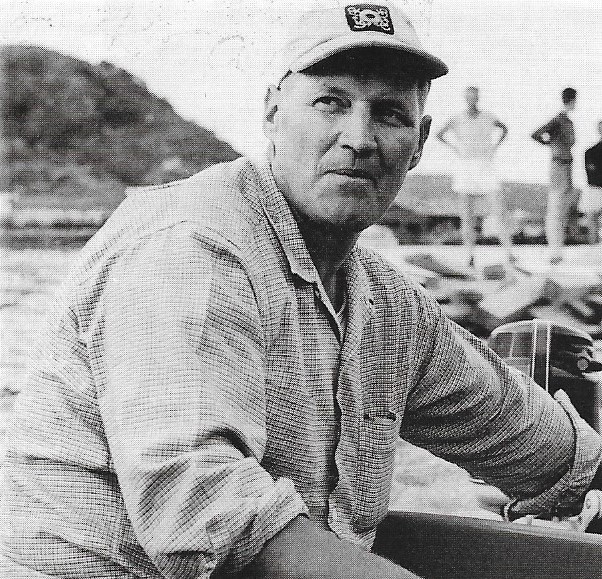Gösta "Gus" Eriksen
Washington's Freshman Coach 1946/47-1949
Syracuse's Crew Coach 1949-1956
Visiting rowing coach for the Swedish National Team, summers 1953, 1954, 1955 Head Coach, Swedish National Team 1956 and 1960
Gus Eriksen was born on New Year’s Eve in 1912 in Seattle. Both his parents had emigrated from the Swedish-speaking parts of Finland and met in Seattle and married there. When Gus and his parents visited Finland in 1929, Gus had a riding accident, he fell off a horse and badly injured his shoulder. This injury stopped him from joining the U.S. Army in World War II. Instead, he took up a teaching position in Navigation and Math at U.S. Navy Pre-Flight at University of Washington during the war.
When Gus’s paternal grandfather died in 1930, Gus’s father returned to Finland to take over the family farm; Gus’s mother followed her husband two years later. Gus refused to leave Seattle and from 1932, age 20, he took care of himself in America.
He studied at the University of Washington and rowed for Al Ulbrickson. Gus trained for the 1936 Olympic rowing in Berlin, but his boat came in second at the trials, after the now mega-famous “boys in the boat”.
After the war years, Gus dropped classroom teaching at Washington and concentrated on physical education and coaching. He coached in skiing, sailing, swimming and freshman and lightweight rowing. In 1947, more than 200 freshmen turned up to be coached by Gus, and as Washington’s freshman coach he was very successful. In 1949, Gus, his wife Jean and three daughters moved to Syracuse where Gus had been offered the position as Head Coach of Rowing. In 1952, Gus and his family of six (a fourth daughter was born in 1950) went to Finland to visit family and friends and watch the Olympic Games.
At the Olympics, the Swedish Rowing Federation contacted Gus to ask him if he was interested in coming to Sweden to train the Swedish rowers. Already at the previous Olympic rowing in Henley-on-Thames in 1948, the Swedish manager had talked to George Pocock, who had accompanied the U.S. oarsmen as a boatsman, about if he knew someone who could coach the Swedes. Pocock recommended Gus as he was Swedish speaking.
Gus and his family spent the three summers of 1953, 1954 and 1955 in Sweden. The latter year, Gus’s crews won two silver medals in the coxed fours and eights at the European Championships. In 1956, Gus resigned from his coaching position at Syracuse, whereafter the Eriksens moved to Sweden where Gus took a full-time job as the Swedish national team coach. He created a stir in the rowing community by combining oarsmen from three rowing clubs from three different towns to form a new “club,” Three Towns. “Sweden has many good rowers, but no good crews,” Gus explained.
In 1956, Gus’s Swedish eight made a sensation by reaching the final in the Grand Challenge Cup at the prestigious Henley Royal Regatta in England. The Swedes lost the final to a French Army crew. At the 1956 European Championships in Bled, Yugoslavia, none of the Swedish crews managed to qualify for the Olympic rowing in Ballarat, Australia. The Swedish Olympic Committee was not willing to spend any money to send the rowers to the other side of the world.
Then Gustaf Thordén, a wealthy ship owner and owner of a large shipyard and president of Three Towns rowing club, stepped in to pay for the Swedish rowers’ trip to Australia. At the Olympics, the Swedish coxed four took the silver medal; two hours later, the four oarsmen (and cox) formed half of the eight who finished in fourth place in the final. Gus’s eight was the only European crew in the final.
Four years later, at the Olympic rowing in Rome, Gus’s eight “Three Crowns” failed completely. Thereafter, Gus trained the athletes in the local rowing club in his hometown of Uddevalla on the Swedish west coast.
In 1958, he started to build a 18’6” (5.65m) long sail boat, Ski-Breeze, which he sold on both sides of the Atlantic until the mid-1960s.
Gus Eriksen died in 1987.
Image provided and biography written by Göran Buckhorn.

